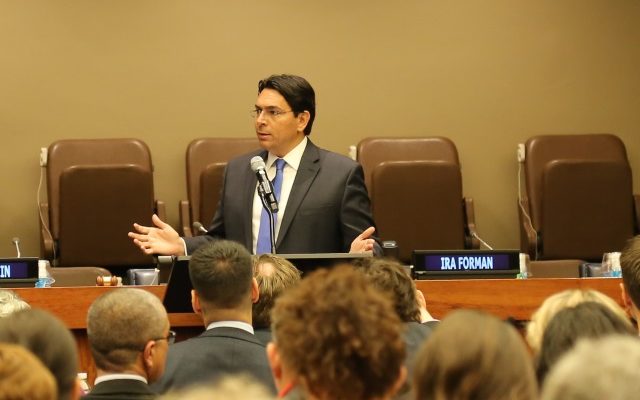The forum brought together leading experts from academia, NGOs, and social media companies to discuss the growing phenomenon of online anti-Semitism.
The United Nations (UN) hosted a high level forum on global anti-Semitism on Wednesday to raise awareness on the advent of the age-old hatred around the world and to propose practical steps that can be implemented by the international community.
The forum brought together leading experts from academia, NGOs, and social media companies to discuss the growing phenomenon of online anti-Semitism, and was hosted by US Ambassador Samantha Power, Canada’s Ambassador Marc-André Blanchard and the European Union’s Ambassador João Vale de Almeida.
“When governments and leaders stand up and speak out in the face of anti-Semitism, even the hatemongers take notice. Imagine how much violence against Jews and other minorities might have been avoided it similar measures were taken in the past. Imagine all the hatred and suffering that we can prevent if we come together with such an effort like today,” Power said in her remarks.
Professor Deborah Lipstadt, the renowned Holocaust historian, professor and author, gave the keynote address and spoke of the connection between Holocaust denial and modern anti-Semitism, a phenomenon she has battled publicly and in court.
Senior executives from Microsoft and other social media companies contributed to the various panels.
Israel’s Ambassador to the UN Danny Danon told the forum that on Twitter, 63 percent of all anti-Semitic tweets are calls for violence against Jews, but only 1 in 10 are ever removed.
The participants discussed practical solutions for tracking anti-Semitic activities online and proposed solutions for battling this phenomenon by utilizing the latest technologies and industry best practices.
“Media companies have to take preventative steps,” Danon demanded. “Stop providing a platform for hate sites. Stop easy access through content searches, and start developing mechanisms to detect and report on racist and anti-Semitic search results.”
In France, which has Europe’s largest Jewish population, anti-Semitic incidents today are seven times higher than in the 1990s, Danon said. And in Britain, 2014 saw the highest-ever number of attacks against Jews.
The four participating missions issued a joint plan at the conclusion of the event outlining their recommendations for fighting online anti-Semitism and limiting its presence in social media.
“Twenty-first century anti-Semitism demands twenty-first century experts to confront this hatred,” Danon stated. “We plan on implementing the recommendations presented here today and utilizing them in the fight against Palestinian incitement which includes many anti-Semitic elements.”
“While anti-Semitism is one of the oldest forms of racism known to the world, it is constantly reinventing itself and finding new ways to spread hatred and violence against the Jewish people,” added Danon. “We must be vigilant and ensure the international community stays focused on this important issue.”
By: Aryeh Savir, World Israel News




